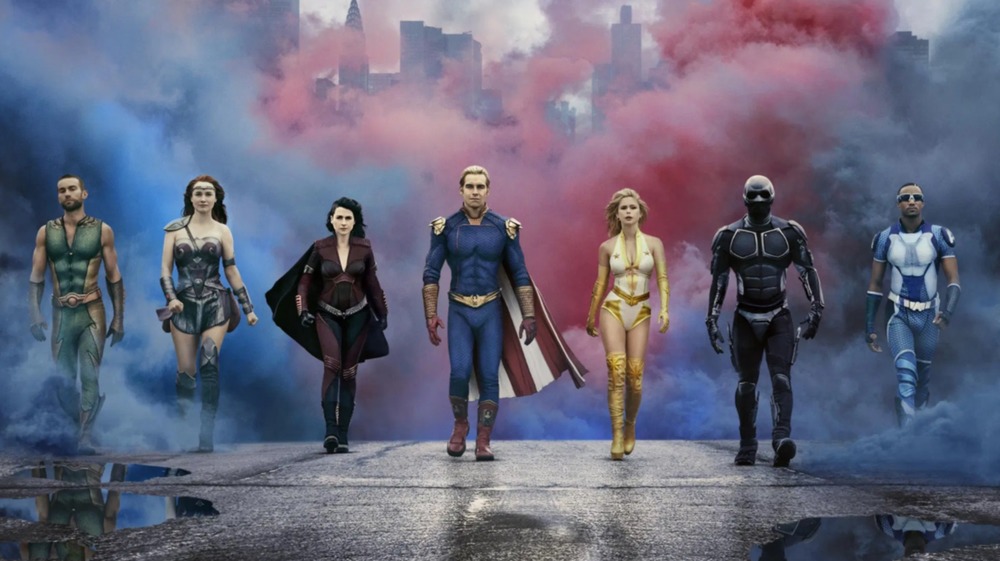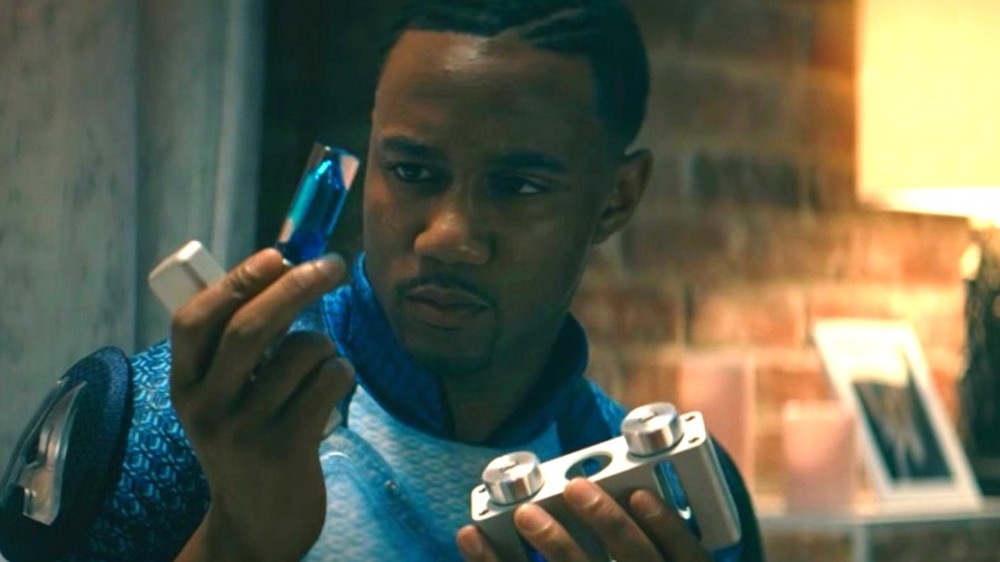What Fans Didn't Notice About Origin Stories In The Boys
Amazon Prime's hit show The Boys is built on dark parodies of classic superhero tropes. Its version of the Justice League, the Seven, are disturbingly caught up in their own selfish interests, with no care for the innocent lives lost along the way. These "heroes" want to keep making money and maintain their celebrity status. What better way to do that than by making super villains? The Superman-type Homelander (Antony Starr) takes the very stuff that gave him powers and distributes it to terrorist organizations to create his own high profile arch-nemeses.
What you might not have noticed is that this is another reference to a common comic book trope. When it comes to superhero stories, the hero often has to face a villain who got their powers from the same source they did. Just look at Captain America, who has to fight the Red Skull and the Winter Soldier — all three of them have their origins in the same Super Soldier Serum.
The Boys' superhero origins are probably the most similar to that of Captain America, as the Super Soldier Serum is very similar to The Boys' Compound V. Both solutions were made during World War II by a German scientist who's defected to the United States. The most obvious difference is that Compound V gives all kinds of powers to its recipients, so while the show's Supes all have the same origins, they have a variety of abilities. Even the Seven have a disparity in power level.
The heroes face a darkness in themselves
Superman fought General Zod, a Kryptonian who also draws his superpowers from the yellow sun. Iron Man fought Iron Monger, both wearing metal suits. Black Panther T'Challa fought Killmonger, each drawing on the heart-shaped herb that bestows the strength of the Black Panther. With many of these showdowns, as Hans Qu argues on Film School Rejects, it's about the hero facing a darkness in himself and growing from it. Even golden boy Captain America has a dark side.
This is not exactly the case in The Boys, as Stormfront (Aya Cash) isn't growing in character when she brutally murders Kimiko's brother Kenji (Abraham Lim). Then again, the superterrorists were never the real villains on the show. Starlight (Erin Moriarty) certainly faces the dark origins of her powers as she works to take down Vought, but her exposure to the disturbing acts almost seems to be making her grimmer. Take, for example, her killing of an innocent man while trying to get Hughie (Jack Quaid) to a hospital.
The Boys isn't so concerned with showing superheroes overcoming dark parts of themselves through a shared origin story, but instead critiquing a broader corruption in the system that's granted them those powers. Season 3 promises to dive into both the history of Vought International and the United States, bringing in the original superhero Soldier Boy. We're sure to learn that the darkness runs deep.

